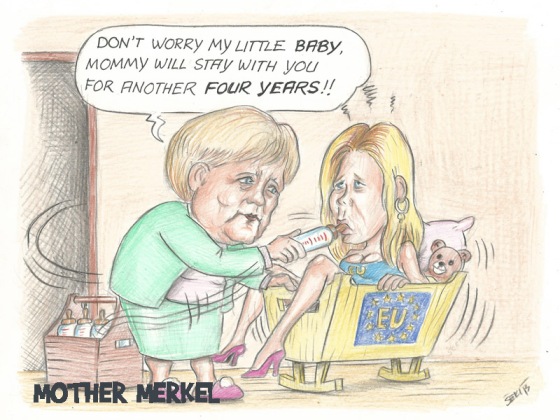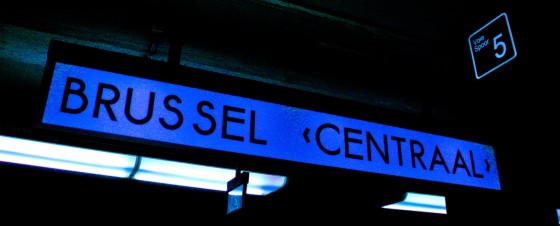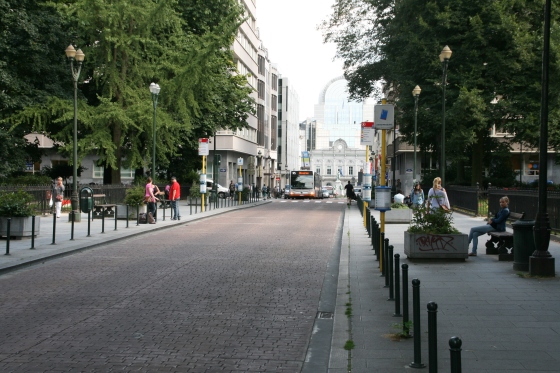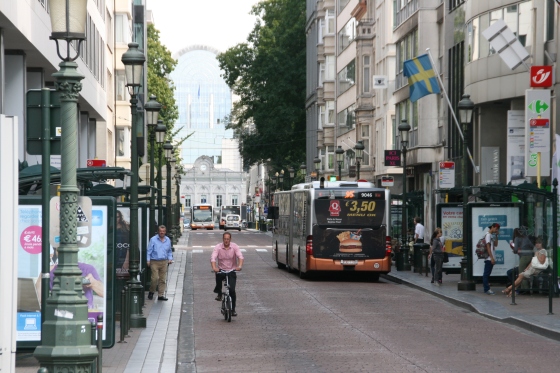Interviews with EU insiders. Some quotes
A couple of months we have walked the streets of Brussels now. Talking to folks working in the Brussels bubble brings new insights. We have talked to a correspondent, a freelance writer, a IT coordinator and a lobbyist. The coming weeks you can expect two more conversations. One with a lobbyist, and one with somebody who is trying to monitor this lobbying business.
To give an oversight, down here a collection of quotes from our interviews so far. You can read the interviews in full, with more context, by clicking on the link at the end of the quote. The idea is to focus on the media and lobbying sector for the coming months. From there, we will see what happens. My guess is these sectors are pretty important to pay attention to right now.
Everyday a lobbyist can postpone legislation, he earns a million more for the company. Their own bonuses continue as well. Its a game of delaying. A couple of months more, a year more, two years maybe. Its a game. – Lobbyist, working in Brussels.
You have a couple of big banks with one goal: world domination. In 1981 the Americans cut AT&T in pieces. There comes a moment when this happens to the banks as well. Its just a story of competition. That is what’s going on in Brussels right now as well. – Lobbyist, working in Brussels.
You have a couple of intellectuals, but most of them just think about the next election, their constituents and hopefully not to much about their own bank account. But, also those folks are present. – Lobbyist, working in Brussels, on politicians in Brussels.
One of the positive notes on the lobby and PR sector is that the sector and its budgets have been growing enormously. If you look at the big companies in the transparency register, some of them are not making big profits, but the majority of them show growth and some of them even doubled their budgets. It’s now or never. If you can’t sell your case right now, you are worth nothing. – Lobbyist, working in Brussels.
Its the only thing we have right now. You are not obliged to register yourself, so in that sense you can raise questions about it. But making it manditory doesn’t solve the problem either, my guess is. There is no capacity to do something with all the information. – Lobbyist, working in Brussels, on the transparancy register for lobbyists.
First of all you have people from different kind of administrative cultures here. Second, you have people who were used to work in other structures, like that of the Commission or the Council. Then you have people who where transferred directly from their Ministry into this building. You have people who have been put into leading positions without any training. All these different cultures with different languages are mixed up together. What a Frenchman says in English, is not what a Dutchman or Spaniard would say. So, you have a problem of interpretation as well. – IT coordinator, working in Brussels.
EU Insider in Brussels. A chat with a IT Coordinator
As with all important buildings in Brussels, you have to arrive early if you’re on a time schedule. Every time you enter a building, there’s the feeling a gate and a plane ready for take-off is not far away. Belts, laptops, cameras, pocket money. Put it in the basket please. Everybody could be a potential terrorist. After 10 minutes, i am cleared. Safe. Not a threat anymore. Relieved.
I am up for a chat with someone working at EU institutions quite a while. Starting as a scientist, this interviewee worked with lots of people and eventually ended up working as IT coordinator at the European Commission. Just like other conversations i had up till now, there’s protest on the use of ‘Brussels’ or ‘EU’. ” It’s a kind of a foreign enemy or ET figure. The best thing you can do is just open your windows and doors for people. Grab a cup of coffee and explain what we are doing.” So, we did.
I have seen people try to fight the system upwards. Very heroic, but eventually you kill yourself. Sometimes you recognize these kind of people, and you think ”oh no, what are you going to do”. There are other ways far more effective. You just don’t end up as the hero at the center of the universe.
EU Expert in Brussels. A chat with a freelance writer
The number of journalists who are leaving Brussels is increasing. You are freelance, you can write and have lots of knowledge about Europe and can tell in-depth stories about it. So, why don’t make a move to the Belgian capital and report about it? It seems like a perfect formula, but when reality comes in, it’s a hell of a job. You discover it’s actually pretty difficult to get your articles published in your own language, says this interviewee.
” I intended to work as a writer and journalist, but i approach it more and more as a part-time job alongside other activities. ”
EU Expert in Brussel. A chat with a correspondent
Walking between the high static buildings of Brussels i pass a security guard holding the tip of his hand on his ear. Youth with laptops enjoy their coffee. Business men leaning against expensive looking cars. In front of the entrance at the European Commission a journalist is talking with, what looks like, an important figure. The cameraman is ready. All people i walk by are different in age and looks, but what unites them is a card hanging fashionably around their necks. Access to power is only granted if you show something first.
![]() The European Union. Brussels. Europe. Centre of power. The city, home to supranational institutes like the Commission, the Parlement and the European Council is often summarized in one word. Keep things simple. Not to difficult please. Travelling back to Amsterdam after spending my first day in Brussels, i hear a reporter on the radio say ‘that Brussels has decided something..’ I laugh, knowing i am listening to a big lie.
The European Union. Brussels. Europe. Centre of power. The city, home to supranational institutes like the Commission, the Parlement and the European Council is often summarized in one word. Keep things simple. Not to difficult please. Travelling back to Amsterdam after spending my first day in Brussels, i hear a reporter on the radio say ‘that Brussels has decided something..’ I laugh, knowing i am listening to a big lie.
”There is that strange idea that Europe is some kind of animal that lives in Brussels. The whole story that Brussels decided something is just plain bullshit. Every journalist or politician that tells you Brussels decided something, lies.”






